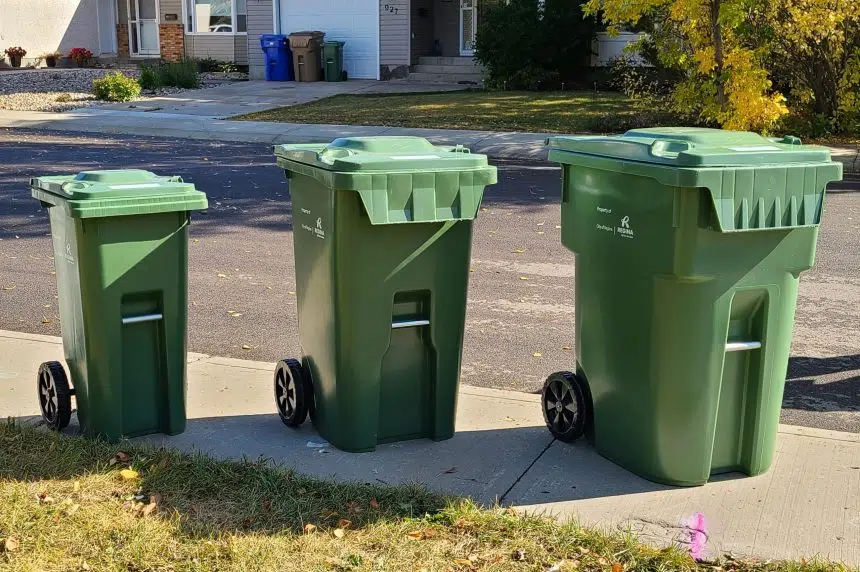The City of Regina is another city committee decision closer to having year-round curbside food and yard waste collection — also known as curbside composting collection.
The Operations and Community Services Committee voted unanimously on Wednesday afternoon to approve the plan for the program and send it on to city council next week for final approval.
The program would provide every home in the city with a 240-litre green cart to collect food scraps and yard-waste materials — and that would include things like soiled pizza boxes and paper towels, which can’t be recycled.
The carts would be collected weekly from April through October and bi-weekly between November and March. At the same time, garbage bin collection would move to bi-weekly collection all year.
According to a report prepared by the city administration, the program is expected to cost $7.5 million — although moving to bi-weekly garbage collection would save $1.5 million a year so the cost with those savings is pegged at $6 million.
Another $5.5 million would be spent in 2022 and $700,000 in 2023 to purchase the green carts.
The program wouldn’t start until 2023, giving the city time to tender out for the composting services and carts. Because the processing company would be able to make money selling the compost, the city would expect to either get a piece of that revenue or save money with a reduced service fee.
By the second quarter of next year, the city will have to make a decision as to how the program will be paid for — whether the money comes from general revenue, user pay or both. If it’s completely user pay, the report said it would cost between $105 and $120 a year per homeowner.
The city believes adding a green cart program will help it reach its goal of diverting waste from the landfill, and help it defer the cost of building on and expanding the current landfill.
A pilot project for the composting program was launched in September of 2020 to run for a year. Fifteen city neighbourhoods were involved.
Those houses saw a reduction in garbage cart waste of almost 45 per cent and an increase in “waste diversion” from 21 per cent to more than 50 per cent.
Unlike in the pilot project, city administration is recommending that the permanent program allow compostable bags to be used in the green bins. It would continue the practice of providing a smaller, under-the-sink bin in addition to the green bin to capture more food waste.
City council will now consider the question at its meeting next Wednesday.











